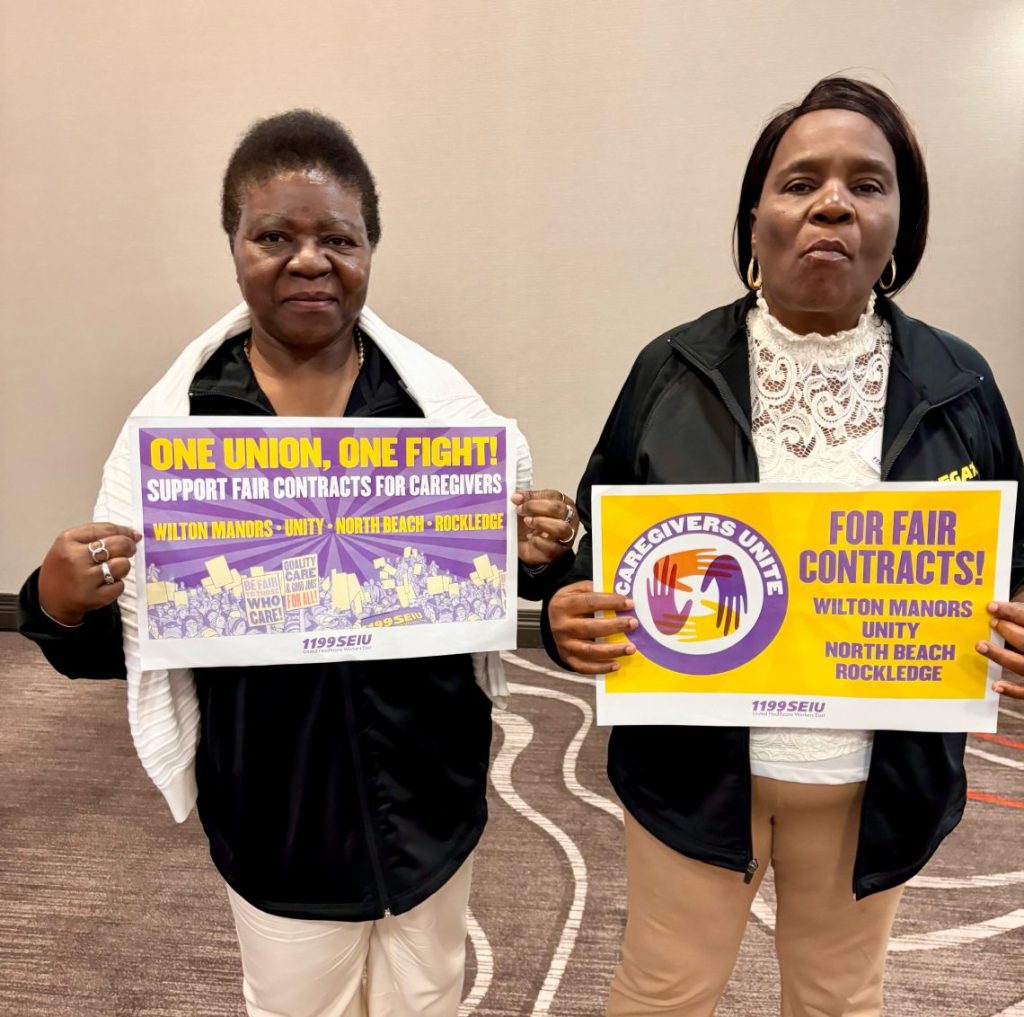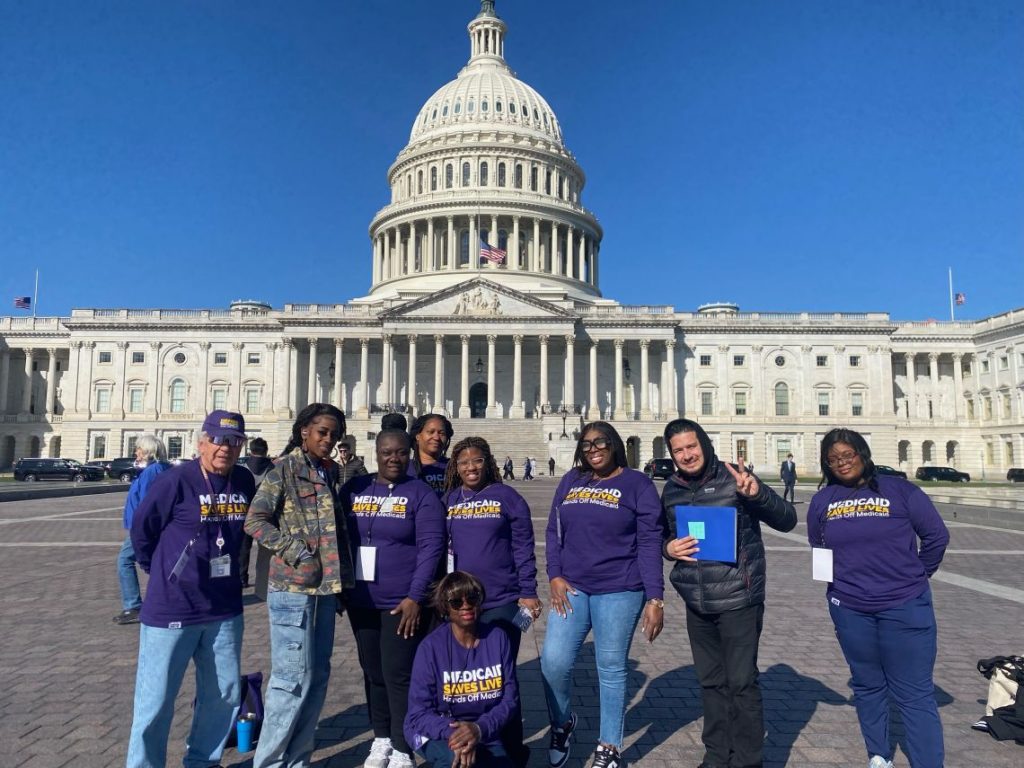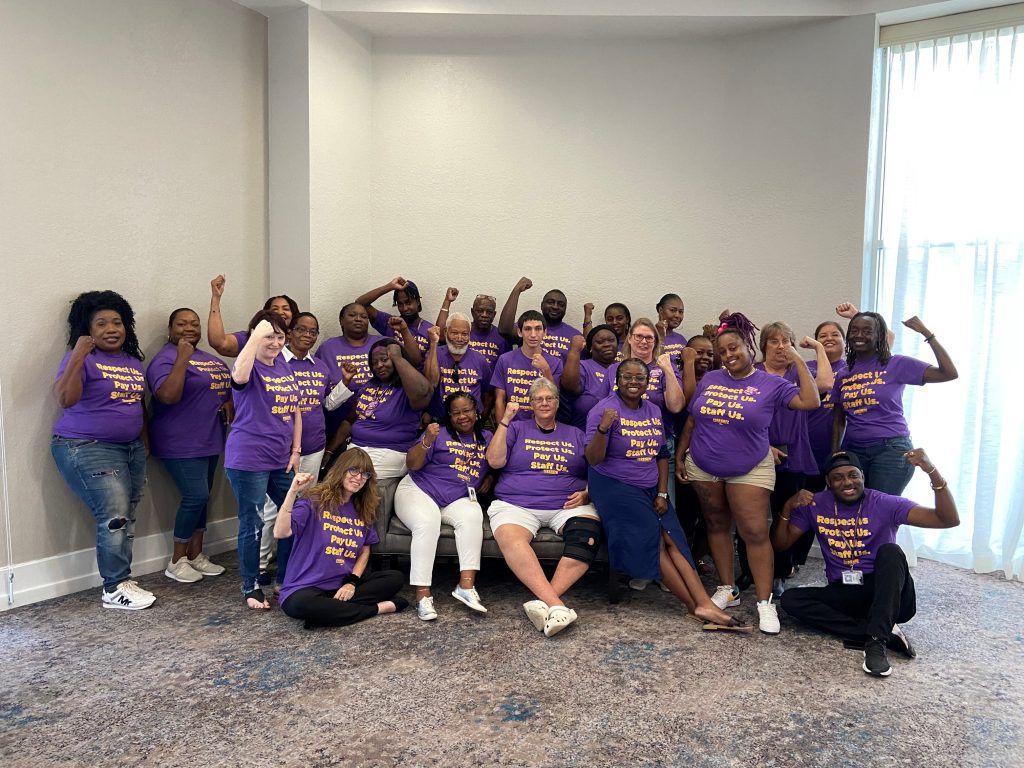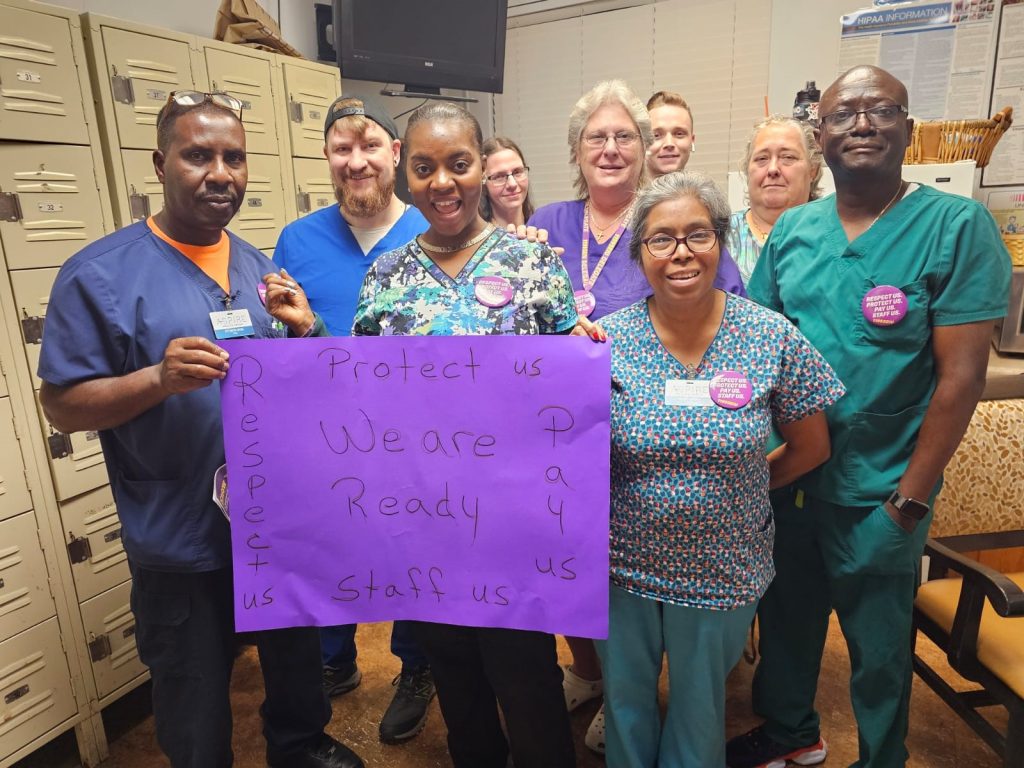FOR IMMEDIATE RELEASE: July 1, 2011
Caregivers Announce Campaign to Protect Florida’s Elderly
and Disabled from July 1 Staffing Cutbacks
Miami, FL – With a new state law taking effect today that rolls back a landmark safe staffing law for nursing homes, caregivers from across the state announced the launch of a new campaign to protect Florida’s elderly and disabled. The top priorities of the campaign: provide quality care guidelines to residents and family members on how to report to the Agency for Healthcare Administration incidents of diminished care due to staffing cuts and inform elected officials that a nursing home in their district is sacrificing care, hold out-of-touch Tallahassee politicians and nursing home companies accountable, and overturn the Florida legislature’s roll-back of safe staffing levels.
“As someone who has been a nursing home caregiver for 30 years, I know what it was like for residents before we were able to get safe staffing passed and strengthened in Florida, and I cannot stand by and let my residents’ health and safety be put in jeopardy,” said Pearl Gooden, a certified nursing assistant at Accentia Health and Rehabilitation Center of Tampa. “Our number one priority is protecting the health and safety of our residents, but we can’t do it alone. We will be working with residents, family members and community allies to help us protect our residents from the consequences of these cuts to safe staffing.”
The new law – part of Senate Bill 2144 – rolls back safe staffing levels from a minimum weekly average of 2.9 hours of bedside care by certified nursing assistants to 2.5 hours of care, which gives caregivers less time with more residents and may increase falls, infections and bedsores, and even cause premature death. The roll-back was announced late at night, on the second to last day of the 2011 legislative session in Tallahassee by State Senator Joe Negron (R-Stuart) and others who slipped the amendment into the state budget without any public input.
“We are going to be talking to our neighbors, collecting signatures, lobbying legislators and informing the public by using the power of our pens, feet and strong voices to stand up for our residents,” said Debora Stanley, a CNA who has worked at Renaissance Health and Rehabilitation Center in West Palm Beach for 13 years. “The fact that Senator Negron and others cut safe staffing without any input from residents’ family members or caregivers is shameful and the public needs to know how their loved ones are being treated.”
Caregivers represented by 1199SEIU United Healthcare Workers East will document falls, injuries and diminished care due to staffing cutbacks, and leading up to the 2012 legislative session, they will be lobbying legislators in their district and in Tallahassee strongly encouraging support for legislation to restore safe staffing levels at 2.9 hours of care. Caregivers and allies will also be launching community-based actions to inform the public and hold legislators and nursing homes accountable for their decisions to put the health and safety of seniors and the disabled at risk.
As a first step in the campaign to protect their residents, caregivers this week delivered 3,000 workers’ signatures from over 40 nursing homes in Florida to nursing home administrators urging them to keep bedside safe staffing levels in place and ignore the roll-back passed by the legislature. Hialeah Convalescent in Miami-Dade County has already confirmed that they will maintain safe staffing levels at 2.9 hours of care, and many other responses are still pending.
When the roll-backs initially passed the legislature, Senator Negron argued that nursing homes cannot afford to maintain higher staffing levels, but according to a study by the Florida Center for Fiscal and Economic Policy, the vast majority of Florida nursing homes are profitable.
Background
Required minimum staffing levels for certified nursing assistants, which were initially instituted in 2001, were increased to 2.9 hours of care in 2007 with bipartisan support.
According to a February 2009 University of South Florida study, “quality of care has substantially improved in Florida nursing homes since the introduction of increased nurse staffing levels and other quality standards since 2001.” The study also noted that “a recent review of the studies linking staffing and quality confirms that the strongest research suggests poor quality of care is linked to inadequate staffing levels.”
When safe staffing at 2.9 hours of care was instituted, it was merely a minimum level of care recommended by independent experts, and yet over the last few years the legislature has continually reduced this standard.
With 350,000 members in Florida, New York, New Jersey, Massachusetts, Maryland and Washington D.C., 1199SEIU United Healthcare Workers East is the largest and fastest growing healthcare union in the country. Our mission is to achieve affordable, high quality healthcare for all.
###
Related posts:
- Media Availability: Caregivers to Share Stories on Detrimental Cuts to Bedside Care
- PRESS RELEASE: Concerned Caregivers Petition Florida Nursing Home Operators to Maintain Safe Staffing Despite Roll Back of Landmark Law
- Tampa Tribune – Letter to the Editor: Hear our voices
- Governor DeSantis Should Include Caregivers on LTC Task Force






